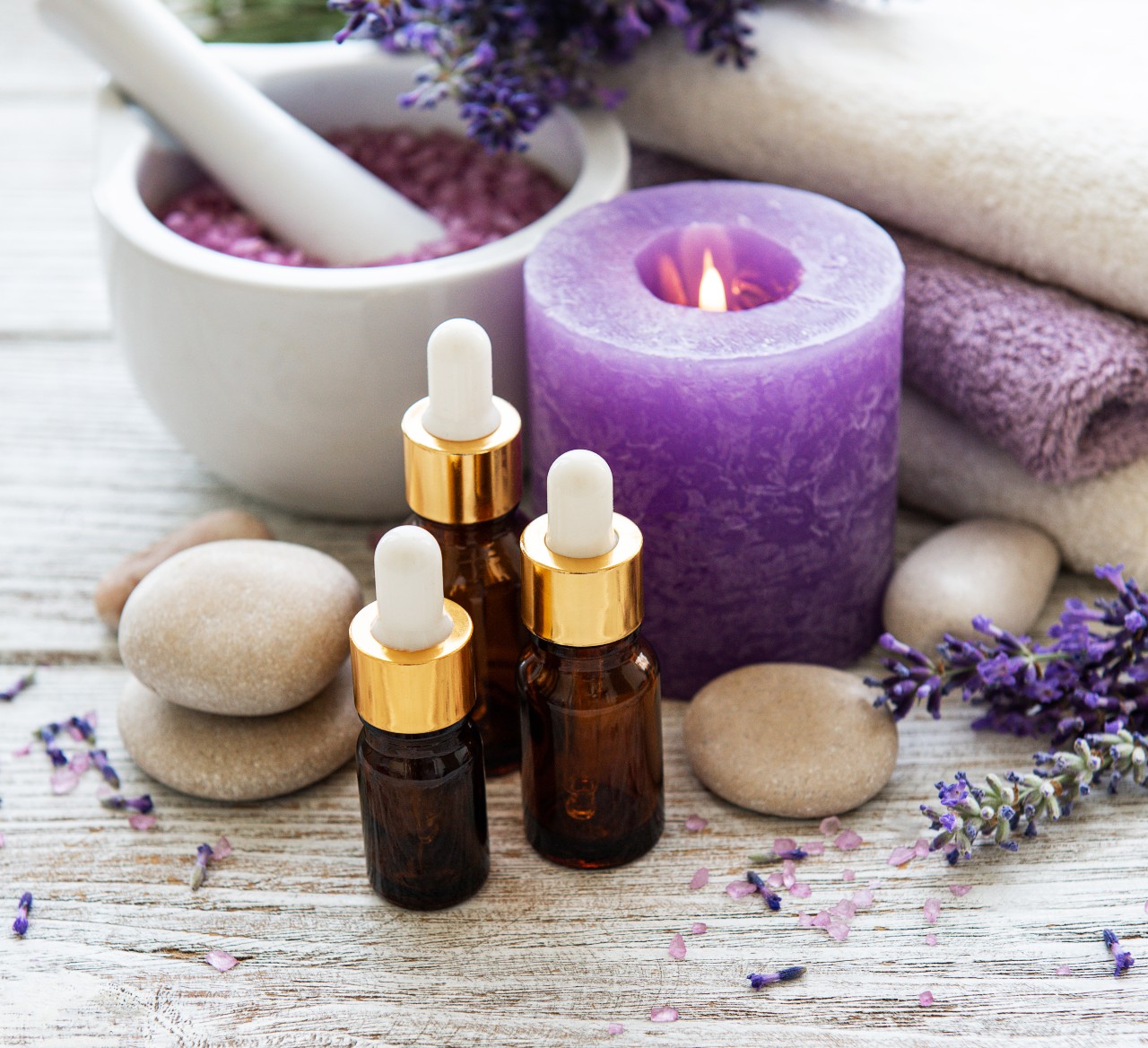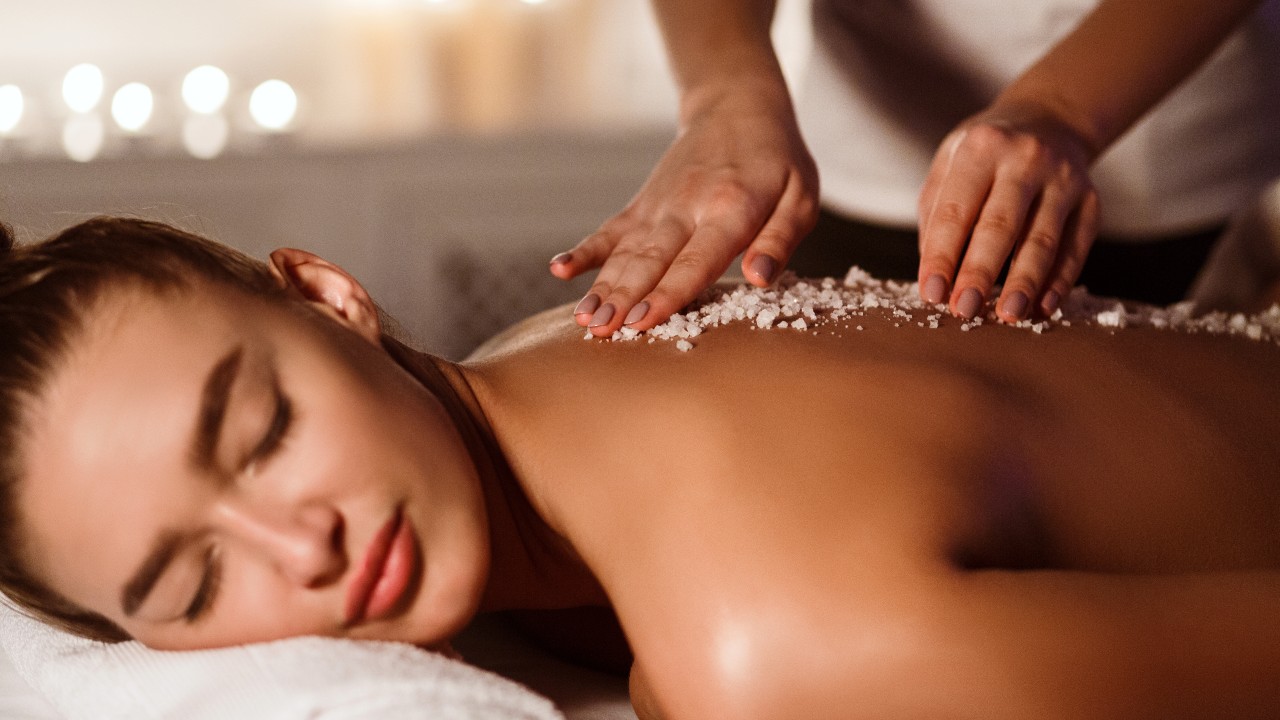Unlock the Benefits of Aromatherapy: Why it’s So Important
Aromatherapy is an age-old practice dating back centuries, one that has been used to soothe, to relax, and to heal. You may have heard of it here and there or perhaps experienced it a few times without knowing what it was called – how many times have you enjoyed the smell of lavender to help you drift off to sleep? Well, that’s aromatherapy, and although it has been around and used for centuries, many still don’t understand the power and benefits of it. That being said, it’s time to unlock the full potential of aromatherapy, and to understand why it’s so important. Let’s dive in and uncover the myriad of benefits that aromatherapy has to offer.
Quick Overview of Key Question
Aromatherapy can have both physical and mental health benefits, such as stress relief, improved sleep, relaxation, headache relief, and improved mood. It can also help to ease symptoms related to respiratory, circulatory and digestive issues.
Introducing Aromatherapy
Aromatherapy has been around for centuries, with a rich history of healing and wellness-boosting benefits. Pungent essential oils sourced from plants have been used to improve physical and mental health in a variety of different cultures around the globe. Many people are skeptical of the efficacy of aromatherapy due to a lack of scientific evidence, while others believe it is an important part of holistic medicine.
Proponents of aromatic therapy argue that it has healing properties which cannot be replicated by conventional medicine. They cite research showing that particular scents can reduce anxiety, boost mood, relax muscles, and provide relief from headaches and menstrual cramps. Furthermore, these essential oils often have numerous additional benefits for skin health, such as improved hydration and reduced inflammation.
On the other hand, some contend that aromatherapy is more a form of pseudoscience. Many studies have not been able to draw significant correlations between scent and health improvement, so skeptics argue that any perceived benefits may simply be psychological. Additionally, certain essential oils can be dangerous if used incorrectly due to their highly concentrated nature.
Ultimately, the debate surrounding aromatherapy may never be resolved conclusively one way or another. However, exploring the history of aromatherapy will give us deeper insight into how it has been used throughout time, as well as why it appeals to so many people today. By learning more about its origins and understanding its many potential applications, we can better understand this fascinating ancient practice and why it remains popular in modern society.
Top Takeaways
Aromatherapy has been used for centuries to improve physical and mental health, with proponents citing its healing properties. While skeptics claim that it is not backed up by scientific evidence, there is some research that shows particular scents can reduce anxiety, boost mood, etc. The debate surrounding aromatherapy may never be resolved conclusively, but exploring its history and potential applications helps us better understand why it remains popular in modern society.
Exploring the History of Aromatherapy
Since ancient times, humans have made use of aromatic plant extracts and essential oils in an effort to improve both physical and psychological health. Aromatherapy has been used not only for personal well-being but also as part of religious and healing rituals. The use of fragrances has traces in Ayurvedic medicine and the temples of ancient Greece and Rome, while modern aromatherapy is said to have its roots in early twentieth century France.
Some researchers argue that although essential oils were widely used long before modern aromatherapy was first established, that it did not become fully “aromatherapy” until chemist and perfumer René-Maurice Gattefossé’s discovery of its benefits. He observed the effects of using lavender oil on burnt skin after a laboratory explosion and began researching its therapeutic effects on other ailments. It was his extensive research into plant biology and essential oils which laid the foundations for modern aromatherapy.
However, there is also evidence that certain practices highly similar to aromatherapy existed centuries before Gattefossé’s experiment with lavender oil. Ancient Egyptians are known for their use of incense, soaps, ointments, balms, and salves often incorporating some form of scent or aroma into their treatments. Additionally, modern scientific studies into essential ingredients used by Egyptians such as frankincense indicate many agents familiar to us today have been traditionally used since even longer than just the 1930s.
It is difficult to attribute the origins of aromatherapy as one specific source due to evidence indicating various cultures independently worked with plant essences adding them to baths and other hygiene rituals. Even if it may not be definitively known where and when the use of aromatic herbs originated, it is clear that there is a great history throughout mankind guiding our current understanding of the potential importance and benefits of using essential oils. With this knowledge we can move forward stronger in exploring the potential these herbal products may possess in aiding our own individual individual well-being.
The Benefits of Aromatherapy
Aromatherapy has a vast array of benefits that have been well documented throughout the centuries and modern scientific studies have only celebrated this ancient practice further. While aromatherapy is not meant to replace traditional medicine, it can serve as an effective supplement that can help reduce stress levels, improve overall mood, and heal the body and mind connection in a very natural way.
One of the most significant benefits of aromatherapy is its potential for reducing symptoms associated with anxiety, depression, and sadness. Studies have shown that when certain essential oils are inhaled or applied topically, particularly citrus-based ones or those with a floral aroma, they can increase feelings of optimism, hopefulness and decrease overall levels of stress. On the other hand, some claims made about aromatherapy not being backed by scientific evidence still persist. However, science continues to emerge indicating the efficacy of certain essential oils in improving moods and behaviors. For instance, recent research conducted by the University of Vienna showed lavender oil to be beneficial in treating anxiety due to its calming and soothing effects.
The many documented benefits of aromatherapy are abundantly clear; it’s a holistic practice comprised of all natural ingredients that human beings have been harnessing for centuries because of their healing properties on both mind and body. Aromatherapy can be used as an effective supplement or addition to any existing medical regimen to promote emotional balance, alleviate feelings such as stress, frustration or sorrow and strengthen the connection between physical health and mental wellbeing. Taking time to explore these benefits more thoroughly will undoubtedly unlock even more potential for this powerful healing practice; now we must focus on how exactly this marriage between mind and body works together through aromatherapy.
Healing the Mind & Body Connection
Aromatherapy is a unique holistic therapy that treats both the mind and body simultaneously. Research has found that it can be beneficial for treating mental illness, insomnia, stress, and anxiety. By inhaling essential oils, neurochemicals in the brain are triggered which encourages balance and equilibrium. Furthermore, the anti-inflammatory properties of essential oils can help reduce chronic physical pain by working on the source of the pain – the brain!
When it comes to aromatherapy’s effects on our physical health, many studies have found that these oils have healing properties and can even support the immune system in its response to viruses and infections. For example, lavender oil is widely known for its calming effects on people and its ability to relieve muscle tension. Peppermint oil can improve circulation, while eucalyptus cleansing oil has been shown to reduce inflammation in many areas of the body.
All in all, aromatherapy has become increasingly popular due to its intricate connection between mental wellbeing and physical health. The power of essential oils ranges from their neurological effects to their medicinal qualities and can result in significant improvements to our overall wellbeing.
As we begin to extend our understanding of aromatherapy’s numerous benefits, let’s take this knowledge further and explore how essential oils and scents can be used to create a calming atmosphere in our homes or places of work.
Creating an Atmosphere with Essential Oil Scents
While healing the mind and body connection can be a powerful remedy for stress and anxiety, aromatherapy also has benefits for creating an atmosphere that promotes relaxation. Jo Malone, a British fragrance house, offers this tip: “A few clicks of an essential oil diffuser creates a moment of calm in any room.” Aromatherapy enables us to create sensory experiences that can refresh moods, awaken emotions and change attitudes. These effects are seen in both individuals and larger settings such as spas, offices and retail spaces.
The power of scent is well documented. Research cited by The International Fragrance Association (IFRA) shows that smells evoke the strongest recollections among the senses—approximately 75 percent of our emotions are stimulated by smell. With essential oils, one no longer needs to rely on artificial fragrances to achieve desired scents. Essential oils have been used for hundreds of years for their therapeutic effects and heightened connection with nature. The purity of essential oils makes them safe and sustainable alternative to synthetic fragrances which often contain harsh chemicals.
Additionally, many believe that certain scents hold transcendent properties—it isn’t just about creating an atmosphere but also tapping into an immersive experience. For instance, some like using peppermint oil to tap into feelings of clarity while lavender can provide calming energy or jasmine can create a feeling of blissfulness.
By understanding the unique benefits our sense of smell can offer, it’s possible to harness those powers for improved mental wellbeing and overall wellbeing. When done properly, aromatherapy encourages connection between body and mind, boosting energy levels, creativity and alertness while providing comfort from physical tension and stress. As we explore how scent affects mood and emotions more deeply in the next section, we will better understand why so many continue to reach for essential oils as part of their self-care routine.
How Scent Affects Mood & Emotions
The aroma of essential oils has an incredible ability to not only create an atmosphere and evoke special memories, but to also affect our mood and emotions. The sense of smell is connected to the limbic system in the brain which is the processing center for emotions, meaning that certain smells can lead us to specific feelings such as joy, sadness, excitement and relaxation. While there are numerous studies exploring how scent affects the way we feel, opinions on the matter differ depending on who you speak to.
One view holds that there is a direct correlation between scent and emotion, while another argues that scent only affects emotions by triggering already established associations and experiences. For example, walking into the home of someone close to you may instantly give you a feeling of comfort because it is associated with their familiar smell. On the other hand, if you accidentally walk into an unfamiliar place with a strange aroma, you might feel anxious or uncomfortable even though you’ve never experienced this smell before.
While much remains unknown about how one scent affects many people in different ways, there have been some notable studies on this phenomenon which provide insight towards its potential power. A 2005 study published in the journal Flavour & Fragrance found that scents like lavender had a relaxing effect on test participants, while aromas like peppermint improved alertness and focus. While some results were skeptics due to small sample size, this research provides evidence of scent’s ability to affect different areas of the brain and potentially impact our moods and emotions.
As we begin to understand more about how scent works and what type of reactions it can create, it can be put to use for enhancing wellbeing through aromatherapy treatments from professionals trained in this practice. Through therapeutic treatments with specific aromas tailored to individual needs, we can look forward to utilizing these beneficial properties for our wellbeing in more targeted ways.
Enhancing Your Wellbeing with Aromatherapy Treatment
Aromatherapy has long been regarded for its therapeutic benefits when it comes to improving physical and mental wellbeing. In addition to its positive effects on mood and emotions, aromatherapy treatment can be used to enhance overall wellbeing. Through the use of essential oils, healing can be achieved both physically and mentally by targeting certain physical symptoms while simultaneously providing a sense of relaxation and stress relief.
For instance, lavender essential oil—a commonly used oil in aromatherapy treatment—has been proven to reduce symptoms associated with insomnia and depression. A study published in the Journal of Alternative and Complementary Medicine found that a combination of lavender essential oil, as well as other aromatic oils, could improve sleep quality, reduce symptoms or depression, and decrease anxiety levels in participants [Source]. Additionally, peppermint and eucalyptus are known for their stimulative effects when used during aromatherapy; these oils can offer physical relief from stress-related headachesand fatigue (NIH).
When it comes to enhancing wellbeing through aromatherapy, the debate lies in deciding whether physical illnesses should be treated solely with traditional medicinal approaches or if more holistic forms like aromatherapy should also be taken into consideration. While there is evidence to suggest that aromatherapy does indeed have healing qualities that can positively impact wellbeing, some argue that it should not take the place of professional medical advice for those suffering from serious illness or disease. On the other hand, given the lack of side effects reported when using essential oils, one could argue that it may be beneficial to employ aromatherapy alongside any standard treatments deemed necessary {PDQ}. Ultimately, those looking to undergo aromatherapy treatment should always consult with a doctor beforehand so that all avenues of care are explored before making a decision.
Frequently Asked Questions
What are the benefits of aromatherapy?
Aromatherapy has a multitude of benefits, both physical and emotional. Physically, it can help improve mood, boost energy levels, reduce stress and anxiety, ease muscle tension, promote better sleep, and even reduce pain and inflammation. Emotionally, it can help provide clarity and calmness of mind, reducing feelings of depression and helping to lift the spirits. Additionally, aromatherapy can also offer spiritual healing effects such as clearing one’s aura or balancing the chakras. Furthermore, essential oils are full of potent antioxidants that help protect our cells from damage caused by free radicals. Not only is aromatherapy beneficial for our minds and bodies but also for our environment as many essential oils are known to cleanse toxins from the air. All these benefits make aromatherapy an incredibly powerful tool for overall health and wellbeing.
What are the different methods of using aromatherapy?
The different methods of using aromatherapy include topical application, inhalation, and internally.
Topical application involves using essential oils in a carrier oil, lotion, cream, or other base in order to apply them directly to the skin. This method is good for relief of certain muscle issues or skin conditions. It can also be used as part of a massage.
Inhalation is another method of aromatherapy that involves inhaling essential oils through the nose or mouth. This is often done with a diffuser or steam inhalation. Inhalation can be used to reduce stress and anxiety, improve sleep quality, and even improve cognitive performance.
Lastly, internally using essential oils entails incorporating them into food or drink for consumption. While this must be done with caution due to potential adverse reactions, it can be an effective way to gain benefits from the oil’s properties.
Overall, these are three of the primary methods of aromatherapy that have been long utilized to reap its benefits. For best results, it’s important to always consult an aromatherapist or specialist prior to beginning your practice!
How can aromatherapy be used to improve physical and mental health?
Aromatherapy is an incredibly versatile and beneficial form of alternative medicine that uses the natural oils and scents of plants to improve physical and mental health. It works by utilizing a variety of oils and smells to influence both physiological and psychological functions.
Physically, aromatherapy can reduce anxiety and stress levels, provide relief from headaches and muscle tension, aid digestion, improve circulation, reduce fatigue and insomnia, boost immunity, and even reduce pain. Mentally, it can help to relax the mind, reduce stress, promote clarity of thought, and increase feelings of focus, motivation, and joy.
By using specially-designed mixtures of essential oils in massages, baths or diffusers for inhalation purposes, you can customize your treatments for specific health concerns. Aromatherapy also has calming effects when used in yoga classes or meditation. In addition to its therapeutic benefits, aromatherapy can be used to create a pleasant atmosphere in any room – perfect for relaxation or simply creating a calming space. Ultimately, the key to unlocking the benefits of aromatherapy lies in understanding which essential oils target certain physical conditions as well as selecting the right scent to set the tone for any occasion.





